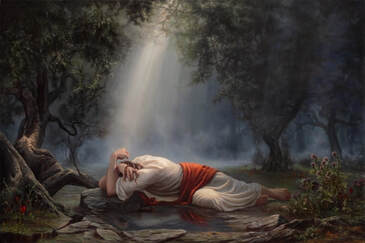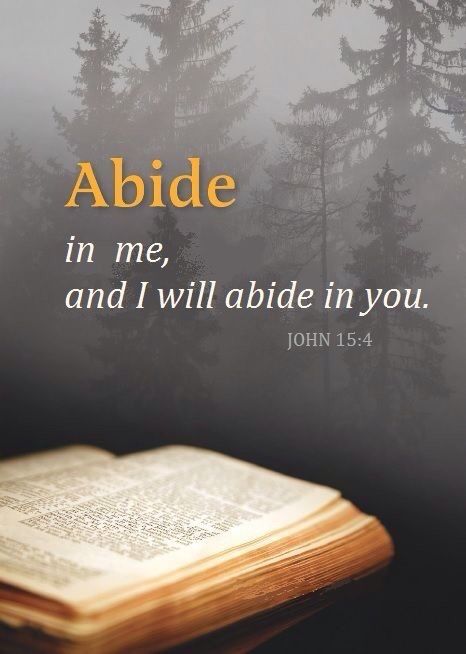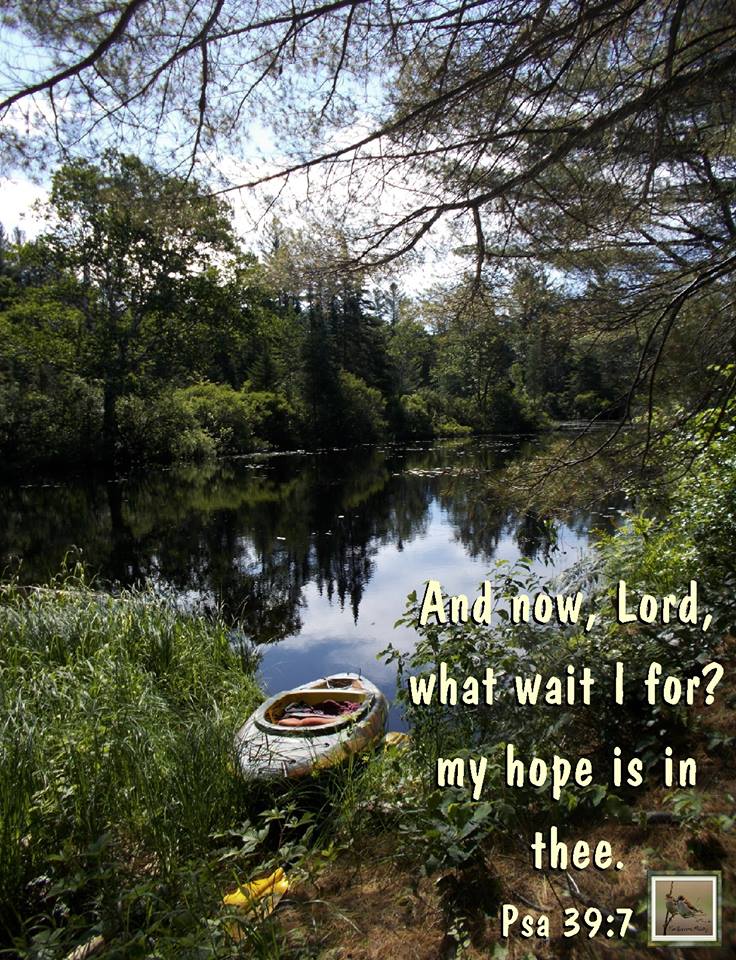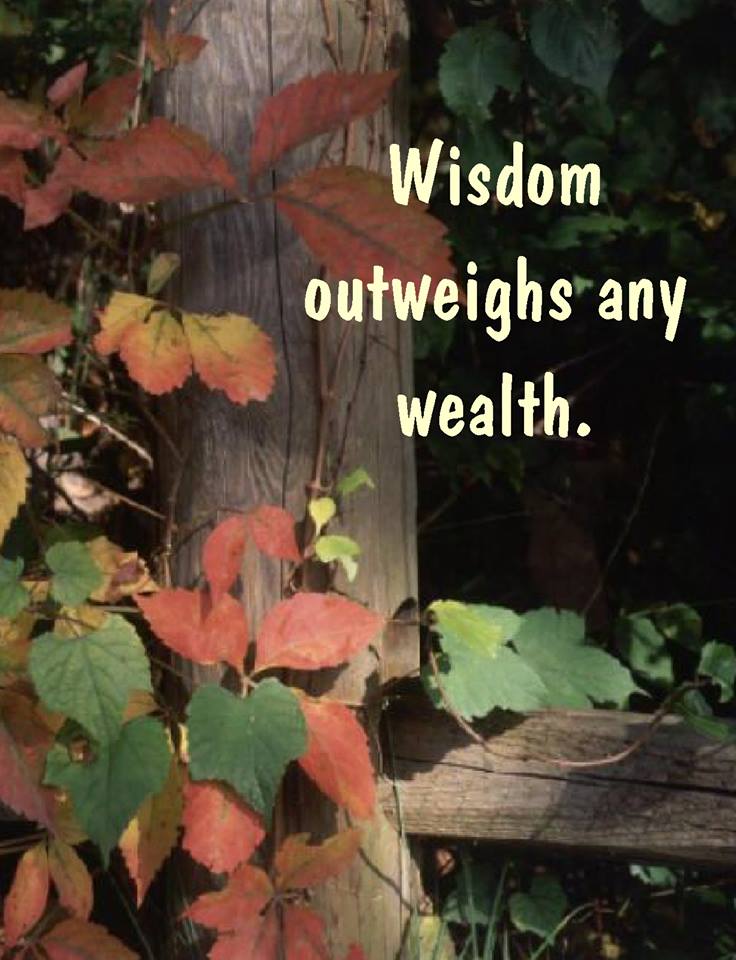And he went a little further, and fell on his face, and prayed, saying, O my Father, if it be possible, let this cup pass from me: nevertheless not as I will, but as thou wilt. Mat 26:39
Gethsemane
Gethsemane
Three elements are distinguishable in our Lord’s prayer:--
I. The sense of sonship, which underlies all, and was never more clear than at that awful moment.
II. The recoil from the cup, which natural instinct could not but feel, though sinlessly. The flesh shrank from the cross, which else had been no suffering; and if no suffering, then had been no atonement. His manhood would not have been like ours, nor His sorrows our pattern, if He had not thus drawn back, in His sensitive humanity, from the awful prospect now so near. But natural instinct is one thing, and the controlling will another. However currents may have tossed the vessel, the firm hand at the helm never suffered them to change her course. The will, which in this prayer He seems so strangely to separate from the Father’s, even in the act of submission, was the will which wishes, not that which resolves. His fixed purpose to die for the world’s sin never wavered. The shrinking does not reach the point of absolutely and unconditionally asking that the cup might pass. Even in the act of uttering the wish it is limited by that “if it be possible,” which can only mean: possible, in view of the great purpose for which He came. That is to be accomplished, at any cost; and unless it can be accomplished, though the cup be withdrawn, He does not even wish, much less will, that it should be withdrawn. So the third element in the prayer is:--
III. The utter resignation to the Father’s will, in which submission He found peace, as we do.—A. Maclaren, D.D.
Jesus in Gethsemane.—1. The struggle in Gethsemane was the completion of that in the wilderness, and prepared the way for the suffering of Golgotha.—The devil uses two ways of turning men from the path of righteousness: he offers them pleasures such as God does not approve, and urges them to avoid the hardships to which God calls them. By these same two means he tried to force the Lord Jesus also to deviate from the line of obedience, from fidelity to His mission. It is true, Satan is not mentioned in the Gospel narratives when this scene is related. But it was of this very moment that Luke was thinking when he finished the narration of the temptation in the wilderness by these words: “The devil departed from Him for a season” (Luk_4:13), or, more exactly, “until a favorable time.” Jesus Himself, when He saw this moment approaching, expressed Himself thus: “The prince of this world cometh” (Joh_14:30).
2. After a man has overcome the attractions of pleasure, it only remains to him to rise above the instinctive fear of pain in order that he may be faithful unto the end.
3. Jesus, in His prayer, puts His will and that of the Father over against each other: “Not My will, but Thine, be done.” How can that be? Had He a different will from that of God? Jesus took our nature when He entered into human life. He consequently possessed all our legitimate instincts, particularly that of the fear of suffering. It was this fear above which it was now His concern to rise by sacrificing it to His mission, as He had given up the desire for enjoyments when in the wilderness. By the third act of wrestling and prayer He subordinates the voice of nature to the voice of the Spirit unreservedly.
4. This is not, as is often believed, the beginning of the atonement; it is only the condition of the atonement. In fact, the atonement does consist not only in a certain amount of suffering to be endured. It consists in the suffering humbly accepted and righteously endured.
5. Victory should properly precede combat.—Jesus had already conquered when the time of suffering came. It is properly at Gethsemane that these words in the priestly prayer were accomplished: “And for their sakes I sanctify myself” (Joh_17:19).—Prof. F. Godet, D.D.
I. The sense of sonship, which underlies all, and was never more clear than at that awful moment.
II. The recoil from the cup, which natural instinct could not but feel, though sinlessly. The flesh shrank from the cross, which else had been no suffering; and if no suffering, then had been no atonement. His manhood would not have been like ours, nor His sorrows our pattern, if He had not thus drawn back, in His sensitive humanity, from the awful prospect now so near. But natural instinct is one thing, and the controlling will another. However currents may have tossed the vessel, the firm hand at the helm never suffered them to change her course. The will, which in this prayer He seems so strangely to separate from the Father’s, even in the act of submission, was the will which wishes, not that which resolves. His fixed purpose to die for the world’s sin never wavered. The shrinking does not reach the point of absolutely and unconditionally asking that the cup might pass. Even in the act of uttering the wish it is limited by that “if it be possible,” which can only mean: possible, in view of the great purpose for which He came. That is to be accomplished, at any cost; and unless it can be accomplished, though the cup be withdrawn, He does not even wish, much less will, that it should be withdrawn. So the third element in the prayer is:--
III. The utter resignation to the Father’s will, in which submission He found peace, as we do.—A. Maclaren, D.D.
Jesus in Gethsemane.—1. The struggle in Gethsemane was the completion of that in the wilderness, and prepared the way for the suffering of Golgotha.—The devil uses two ways of turning men from the path of righteousness: he offers them pleasures such as God does not approve, and urges them to avoid the hardships to which God calls them. By these same two means he tried to force the Lord Jesus also to deviate from the line of obedience, from fidelity to His mission. It is true, Satan is not mentioned in the Gospel narratives when this scene is related. But it was of this very moment that Luke was thinking when he finished the narration of the temptation in the wilderness by these words: “The devil departed from Him for a season” (Luk_4:13), or, more exactly, “until a favorable time.” Jesus Himself, when He saw this moment approaching, expressed Himself thus: “The prince of this world cometh” (Joh_14:30).
2. After a man has overcome the attractions of pleasure, it only remains to him to rise above the instinctive fear of pain in order that he may be faithful unto the end.
3. Jesus, in His prayer, puts His will and that of the Father over against each other: “Not My will, but Thine, be done.” How can that be? Had He a different will from that of God? Jesus took our nature when He entered into human life. He consequently possessed all our legitimate instincts, particularly that of the fear of suffering. It was this fear above which it was now His concern to rise by sacrificing it to His mission, as He had given up the desire for enjoyments when in the wilderness. By the third act of wrestling and prayer He subordinates the voice of nature to the voice of the Spirit unreservedly.
4. This is not, as is often believed, the beginning of the atonement; it is only the condition of the atonement. In fact, the atonement does consist not only in a certain amount of suffering to be endured. It consists in the suffering humbly accepted and righteously endured.
5. Victory should properly precede combat.—Jesus had already conquered when the time of suffering came. It is properly at Gethsemane that these words in the priestly prayer were accomplished: “And for their sakes I sanctify myself” (Joh_17:19).—Prof. F. Godet, D.D.
THE HOUR WHEN THE FLESH WAS WEAK
Divine Sorrow
Divine Sorrow
It is not on the actual physical sufferings of the Crucifixion that the Bible most invites us to dwell—it relates them, but it passes over them as lightly as the circumstances will admit—but on the inner suffering, on the inner intentions of the scene, we are invited to rest; and it is this inner intention which it expresses in the garden of Gethsemane.
I. Consider what were the causes which wrung from the Redeemer this strong crying and tears, the intolerable anguish of that hour among the sacred olive-trees, on the eve of the first Good Friday.
(1) First, that gloom may have been the sense of the near approach of death with all the dread misgivings which beset the spirit in that supreme hour.
(2) Or, again, it may have been the sense of loneliness—of the ingratitude, the desertion, the failure of disciples and kinsmen and country.
(3) Or, yet again, it may have been something deeper, the sense of the load of human wretchedness entering into his soul, so as almost to take possession of it, so that, in the strong language of St. Paul, "He who knew no sin was made sin for us."
II. Let us remember that this scene is the silent, but most significant, protestation against the misery of wrong-doing, against the exceeding sinfulness of sin. Let us remember it also as the memorial that if we are oppressed by trials, which seem to us too hard to bear, we are but sharing the destiny of the well-beloved Son in whom God is well pleased. The scene suggests also how and in what spirit we ought to pray. There is something nobler and higher in the efficacy and the answer of prayer than the mere demanding and receiving the special blessings for which we ask. We are, indeed, by this narrative encouraged to lay all our wants before our Father, to cast all our cares upon Him, to beseech Him that He will hear us in small things as in great. We may pray, even as our Saviour prayed, that if it be possible the cup of our trial may pass from us; but if no direct answer be given, if the cup does not pass from us, let not our faith be shaken; let us look at the history of our Saviour’s agony.
A. P. Stanley, Christian World Pulpit
Personal Note: This devotion was not put into The Prayer Closet page, because of the magnitude of the subject. This battle Jesus waged in Gethsemane against the devil, and his own soul, has no equal. Nothing can compare with it. His victory in the garden that night, will be one of the things taught in heaven-over and over again to saints, and angels; to remind all creation, what suffering it took, for Christ to win the Atonement for humanity, and it began to be accomplished in this hour of misery and anguish.
Lorna Couillard
I. Consider what were the causes which wrung from the Redeemer this strong crying and tears, the intolerable anguish of that hour among the sacred olive-trees, on the eve of the first Good Friday.
(1) First, that gloom may have been the sense of the near approach of death with all the dread misgivings which beset the spirit in that supreme hour.
(2) Or, again, it may have been the sense of loneliness—of the ingratitude, the desertion, the failure of disciples and kinsmen and country.
(3) Or, yet again, it may have been something deeper, the sense of the load of human wretchedness entering into his soul, so as almost to take possession of it, so that, in the strong language of St. Paul, "He who knew no sin was made sin for us."
II. Let us remember that this scene is the silent, but most significant, protestation against the misery of wrong-doing, against the exceeding sinfulness of sin. Let us remember it also as the memorial that if we are oppressed by trials, which seem to us too hard to bear, we are but sharing the destiny of the well-beloved Son in whom God is well pleased. The scene suggests also how and in what spirit we ought to pray. There is something nobler and higher in the efficacy and the answer of prayer than the mere demanding and receiving the special blessings for which we ask. We are, indeed, by this narrative encouraged to lay all our wants before our Father, to cast all our cares upon Him, to beseech Him that He will hear us in small things as in great. We may pray, even as our Saviour prayed, that if it be possible the cup of our trial may pass from us; but if no direct answer be given, if the cup does not pass from us, let not our faith be shaken; let us look at the history of our Saviour’s agony.
A. P. Stanley, Christian World Pulpit
Personal Note: This devotion was not put into The Prayer Closet page, because of the magnitude of the subject. This battle Jesus waged in Gethsemane against the devil, and his own soul, has no equal. Nothing can compare with it. His victory in the garden that night, will be one of the things taught in heaven-over and over again to saints, and angels; to remind all creation, what suffering it took, for Christ to win the Atonement for humanity, and it began to be accomplished in this hour of misery and anguish.
Lorna Couillard








